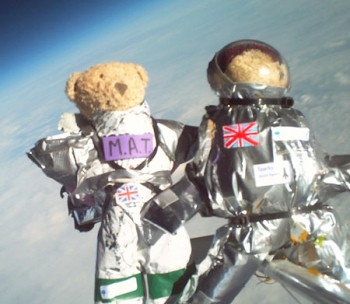With the end of the U.S. Space Shuttle program this summer, there's been a lot of talk about the future of manned space exploration. As the name "shuttle" would suggest, the Space Shuttle program was supposed to mark the beginning of space missions that were more regular and less expensive, an opportunity for both scientific and commercial space travel. But now that the program has ended, we've lost what has been, arguably, one of the more glamorous occupations that could entice students into thinking about a future career in space exploration: the job of space shuttle astronaut.
But as Spacehack's Ariel Waldman is quick to point out, we might be placing too much emphasis on the "astronaut" when we think about the possibilities of exploring space. After all, after 50 some-odd years of space missions, humans have only sent 500 people into space. When we think about the impact of the Internet, a technology that's just about as old as the space mission, we can see that the latter has had a far greater and far more democratizing impact.
How then can we take the lessons and the opportunities of the Internet -- all its democratizing potential -- and use that to re-think space exploration? Are there ways in which we can continue to explore space even though the opportunities to send humans there seem, for the near future at least, to have diminished?
Yes, there are, says Waldman, whose Spacehack website helps highlight a variety of space projects in which anyone can readily participate.
The projects on Spacehack range from the well-known SETIQuest search for intelligent life in the universe to the TubeSat Personal Satellite kit, which as the name suggests is a way to build your own satellite.


